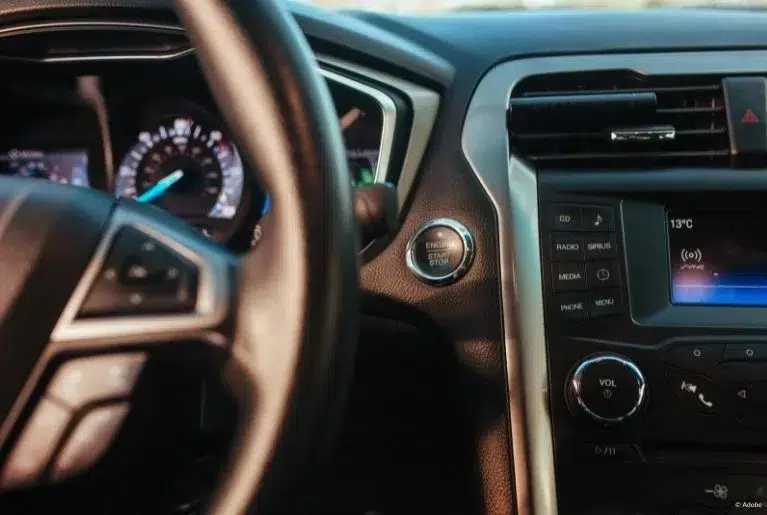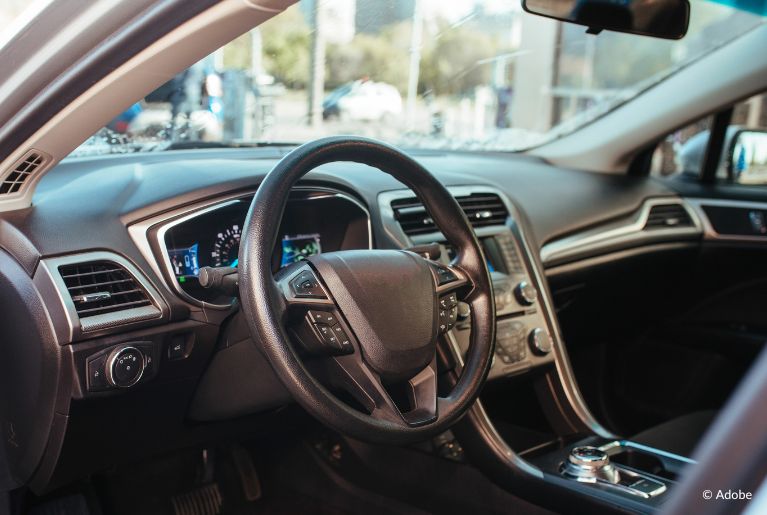Slow acceleration, clunking, shuddering and shaking are just a few reported defects appearing in Ford Fusion and Ford Escape vehicles with an automatic 6-speed transmission. According to a class action lawsuit, Ford knew about the defects in the 6F35 automatic transmission since 2009. Despite this knowledge, Ford has been selling vehicles equipped with the 6F35 transmission for more than a decade.
Ford marketed these transmissions as having “more efficient power delivery, better fuel economy and smoother, quieter and more precise shifts.” However, Ford Fusion and Ford Escape owners are claiming that their vehicles take an inordinately long time to accelerate from a stop or a low speed, fail to accelerate when needed, clunk when drivers slow down or accelerate at low speeds, shudder and shake, and/or make a loud clunk or knocking noise when the transmission selects the correct gear ratio.
On top of that, Ford Fusion and Ford Escape owners allege that the transmissions’ lifespans are unreasonably short. Yet, they have to shell out a good deal of money for transmission replacements because the transmissions are often not repaired sufficiently during the warranty period.
Ford 6F35 Transmission Information
- What model years are in the transmission lawsuit?
- What’s wrong with the Ford 6F35 transmission?
- What causes the Ford 6F35 transmission problems?
- How has Ford responded to the 6F35 transmission defects?
- What if my Ford Fusion or Ford Escape has a different transmission?
- Should I stay in the class action lawsuit? Or should I pursue my own lemon law claim?
What model years are in the transmission lawsuit?
The Ford 6F35 transmission lawsuit broadly includes the following vehicles:
- 2010–2020 Ford Fusion
- 2009–2021 Ford Escape
The following vehicles contain the 6F35 transmission:
- Some 2010–2012 Ford Fusion (automatic, non-hybrid)
- All 2013–2020 Ford Fusion (automatic, non-hybrid)
- All 2009–2019 Ford Escape
Some Ford Fusions, notably Fusion Sports and Fusions with 3-L V-6 engines, include the SelectShift control option for the 6F35 transmission. SelectShift allows the driver to shift gears using hand controls without a clutch.
Not all vehicles with 6F35 transmission come with the SelectShift control option. The transmission defects present similarly, regardless if the SelectShift control option is present.
What’s wrong with the Ford 6F35 transmission?
According to the class action lawsuit, Ford’s 6F35 transmission is prone to the following issues:
- Sudden and unexpected shaking
- Violent jerking
- Lurching, surging or revving
- Clunking and other noises
- Shuddering or juddering (when it bucks and kicks on acceleration)
- Delayed acceleration, especially from a complete stop
- Gears slipping
- Hesitating while accelerating
- Difficulty stopping the vehicle
- Loss or lack of motive power
- Delayed downshifting
- Hard deceleration
- Shift flares (slippage or an increase in engine RPM between gears on acceleration)
- Premature wear and tear
- Transmission failure while driving
The transmission defects and/or failures allegedly cause Ford Fusion and Ford Escape owners to require a transmission replacement.
What causes the Ford 6F35 transmission problems?
The Ford class action lawsuit alleges that the 6F35 transmission issues are caused by:
- Failing fluid seal integrity,
- Deficiencies in the throttle body,
- Failed torque converter welds,
- Driveshaft failure,
- An undersized fuel pump,
- Faulty software logic and architecture,
- Faulty calibration values,
- Faulty solenoids,
- Faulty clutch friction materials,
- Faulty rocker one-way clutch,
- Faulty torque converter,
- Failed Transmission Control Module or Powertrain Control Module updates, which were intended to limit problems caused by the transmission’s design or manufacture,
- Automatic transmission fluid (“ATF”) not suited to the 6F35 transmission,
- Vehicle design and architecture issues, and/or
- The transmission’s software and hardware being unable to work together to ensure proper gear shifting, thanks to an overall insufficiently robust design.
The lawsuit alleges that at least one of these issues is the culprit behind the recurring Ford 6F35 transmission defects. However, other transmission models installed in the Ford Fusion and Ford Escape may show similar issues.
How has Ford responded to the 6F35 transmission defects?
Since at least 2009, Ford was aware that the 6F35 transmission was defective. According to the lawsuit, Ford knew or should have known about these defects through pre-market testing, warranty claims, consumer complaints to the National Highway Traffic Safety Administration, complaints made to Ford and its dealerships and other sources.
The Ford Fusion and Ford Escape vehicles included in the lawsuit are covered by a New Vehicle Limited Warranty, which covers repairs needed to correct defects in materials or workmanship of covered parts. Basic coverage lasts 36 months or 36,000 miles, whichever comes first. The powertrain coverage, which covers the transmission, lasts 60 months or 60,000 miles, whichever comes first.
However, owners of Ford Fusion and Ford Escape vehicles allege that their transmissions fail just around the time or mileage at which the warranty expires. When the transmission failure happens outside the warranty period, Fusion and Escape owners have to pay significant amounts of money to get a transmission replacement.
The Ford Escape and Fusion owners listed in the complaint said they requested a permanent fix to their transmission problems, but have only received “temporary stop-gap measures” that put off inevitable transmission failure.
What if my Ford Fusion or Ford Escape has a different transmission?
If your Ford Fusion or Ford Escape does not have a 6F35 transmission, you may be included in the class action lawsuit anyway. The lawsuit currently includes 2010-2020 Ford Fusion and 2009-2021 Ford Escape cars with a 6F35 or a “very similar transmission.” At present, it finds that “failures in non-6F35 vehicles have merits” because these cars reportedly experience very similar transmission defects.
According to the lawsuit, the similarity in these transmission issues points to problems in the “core problem in design and architecture” of the vehicles themselves. The transmissions fail due to damaging forces inflicted by the “unique body, engine, performance goals, and overall mechanical demand of the vehicle.”
The transmissions tentatively included in the 6F35 lawsuit include:
- The 8F35 transmission installed in 2020–2021 Ford Escape vehicles.
- The continuously variable transmissions (CVTs) installed in the Ford Fusion Hybrid and the Ford Escape Hybrid
- The Aisin or Aisin Warner 6-speed automatic transmission in some 2010–2013 Ford Fusion vehicles
The inclusion of the 8F35, CVT or Aisin transmissions is tentative because if the Court decides that these transmissions’ issues aren’t similar enough to the 6F35, the lawsuits’ plaintiffs will “request an opportunity to dismiss any 8F35, CVT/Hybrid, and/or Aisin owners/lessees without prejudice and separately re-file their claims.”
If your Ford Escape or Ford Fusion has a manual transmission, you are not part of this class action lawsuit.
Should I stay in the class action lawsuit? Or should I pursue my own lemon law claim?
An individual lemon law claim has considerable advantages over staying in a class action lawsuit. A class action lawsuit represents a large number of people with similar claims against a corporation. When a class action lawsuit is resolved, individual members may only get a small part of the final settlement. An individual lemon law claim allows you to sue for charges a lot more specific to your situation and may allow you to recover a much larger amount in cash compensation.
However, the California Lemon Law has specific criteria over who can file a lemon law claim.
The basic criteria is that a California resident has to have bought or leased a vehicle from a dealership in California, that vehicle has to have been purchased with the original warranty, the vehicle has to have experienced issues affecting its use, value or safety, and the vehicle owner or lessee has to have brought it to the dealership for a reasonable number of repair visits during the warranty period. Once you find out your vehicle is potentially defective, you have four years to file a claim. These criteria affect which model years can qualify for a lemon law claim.
If you have a 2017 or newer Ford Fusion or Ford Escape, we recommend opting out of a class action lawsuit before certain deadlines so you can retain your right to file an individual claim under the lemon law. Contact our Ford lemon law attorneys by calling 877-217-7676.
Lemon Law Help by Knight Law Group is an automotive lemon law firm that exclusively practices in California. If you are a California resident who purchased or leased a defective vehicle from a licensed dealership in California, we may be able to help you get rid of your potential lemon and recover significant cash compensation. Model year restrictions apply: 2017–Present vehicle models only.
However, we cannot help those who reside outside of California or purchased their vehicle outside of California unless they are active duty members of the Armed Forces, nor will we be able to refer those to a lemon law firm in their states.
To learn more about the California Lemon Law and your legal rights, visit our guides on the California Lemon Law and Used Car Lemon Law for more information.









